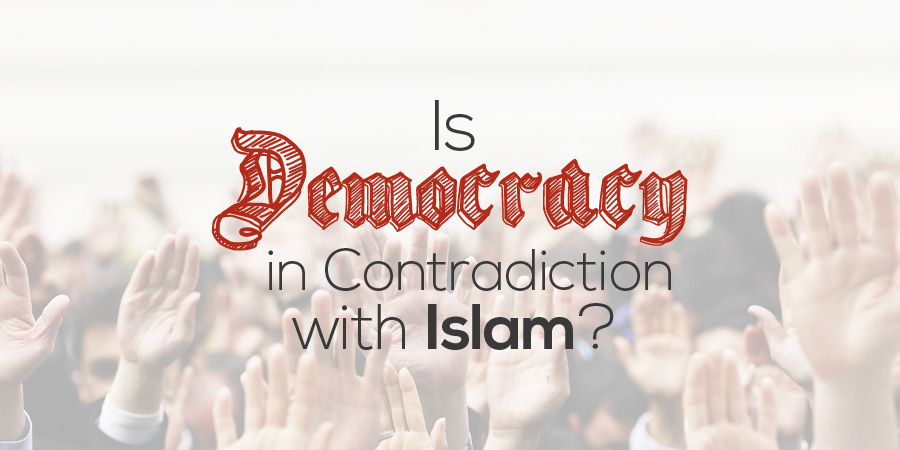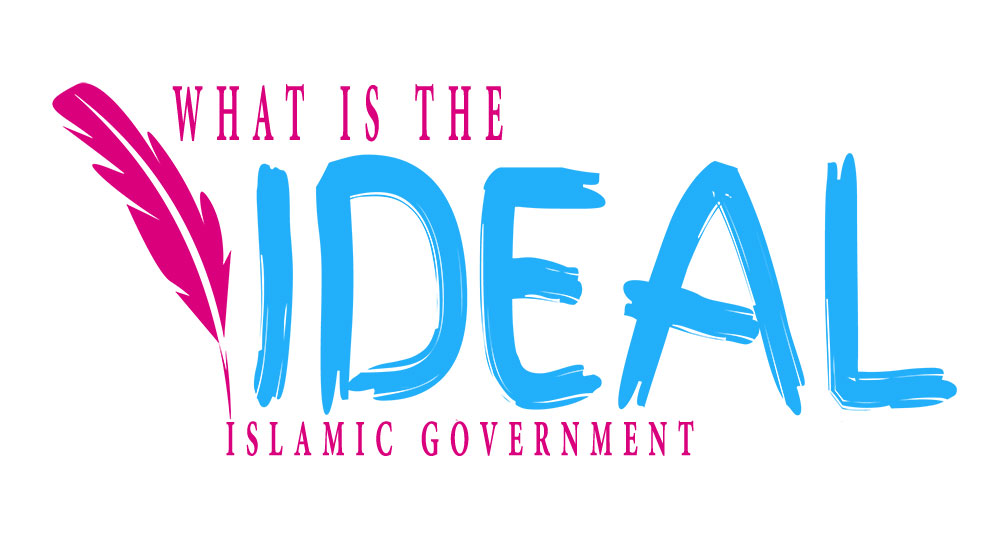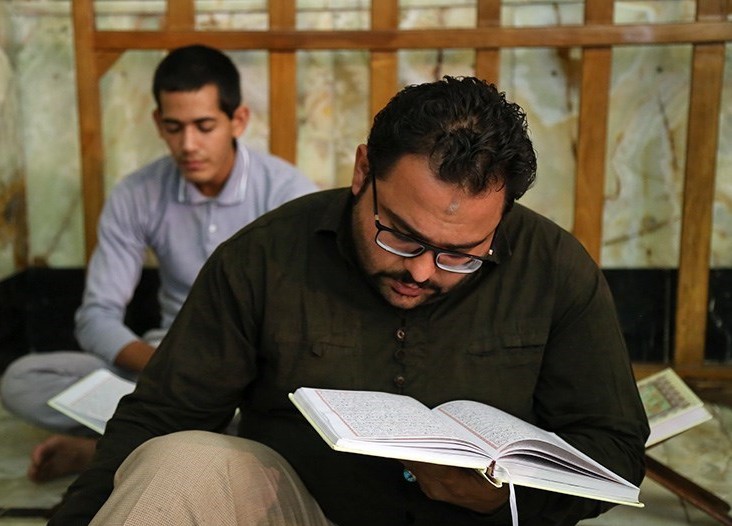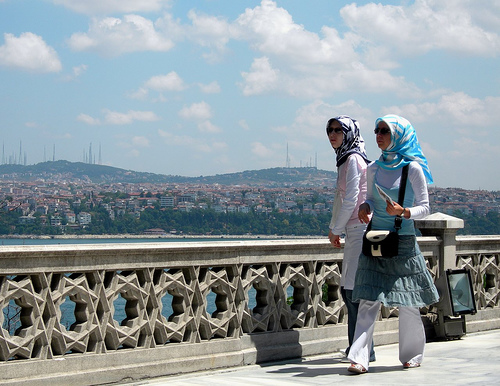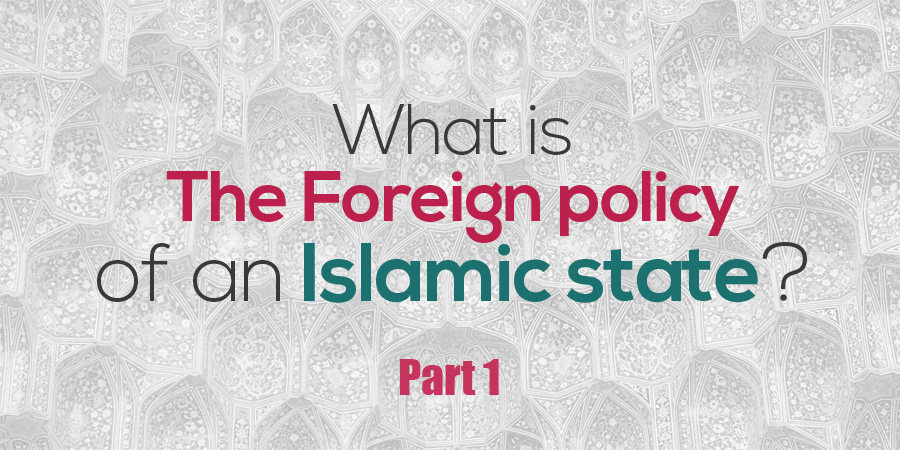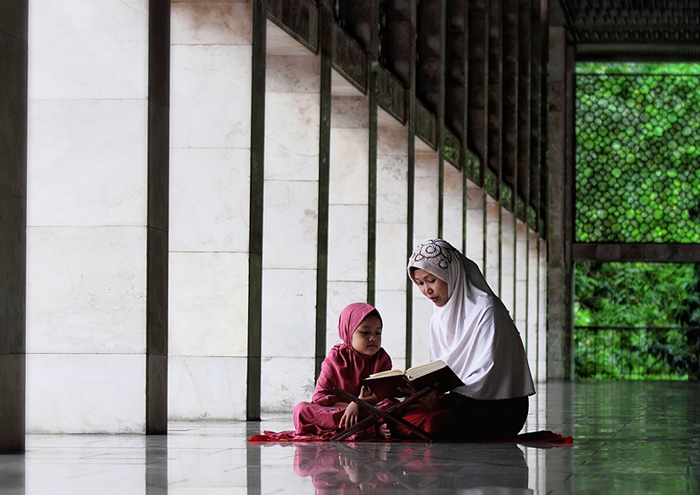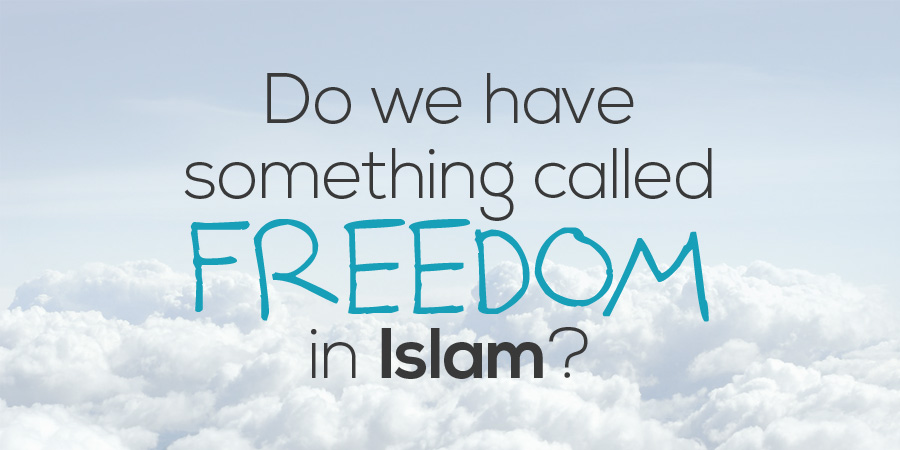
Alleged contradiction between religious rule and freedom
A fallacious misgiving that has been raised in different forms to deceive people is that if religion wants to interfere in sociopolitical affairs and compel people to observe a certain pattern of behavior and obey a certain person, it is repugnant to freedom; man is a creature possessing freedom and autonomy to do whatever he wants to do and no one should compel him to do a certain thing. For religion to determine his duty and ask him to obey, nay unconditionally obey, is inconsistent with freedom.
Propagating the above question through a religious tune
In order to make this misgiving appealing to religious people, feigning religiosity and presenting oneself as a believer of the Qur’an, makes it appear religiously and Qur’anically based and claims that Islam respects human freedom; the Holy Qur’an negates the ascendancy and domination of others, and even the Messenger of Allah (s) has no dominance over any body and could not compel anyone; thus, by citing verses of the Qur’an, we are made to acknowledge that man is free and is not supposed to obey anyone.
The orientation of these misgivings and fallacies is to undermine the theory of wilayah al-faqih. The point it is trying to drive at is that obligatory obedience to the wali al-faqih is against human freedom, and this is contrary to the spirit of Islam which regards man as the noblest of creation and the vicegerent of God on earth. Let us quote below some verses cited by those expressing the misgivings:
While addressing the Prophet (s), God says:
(فَذَكِّرْ إِنَّمَا أَنتَ مُذَكِّرٌ ٭ لَّسْتَ عَلَيْهِم بِمُصَيْطِرٍ)
“So admonish—for you are only an admonisher and not a taskmaster over them.”1
Based on this verse, the Prophet (s) who occupies the highest human station has no dominance over the people; the people are free and not required to obey the Prophet (s) and he has no right at all to express opinion on the lives of people!
(وَمَا جَعَلْنَاكَ عَلَيْهِمْ حَفِيظًا وَمَا أَنتَ عَلَيْهِم بِوَكِيلٍ)
“We have not made you a caretaker for them, nor is it your duty to watch over them.”2
(مَّا عَلَى الرَّسُولِ إِلاَّ الْبَلاَغُ)
“The Apostle’s duty is only to communicate.”3
(إِنَّا هَدَيْنَاهُ السَّبِيلَ إِمَّا شَاكِرًا وَ إِمَّا كَفُورًا)
“Indeed We have guided him to the way, be he grateful or ungrateful.”4
(وَقُل الْحَقُّ مِن رَبِّكُمْ فَمَن شَاء فَلْيُؤْمِن و مَن شَاءَ فَلْيَكْفُرْ…)
“And say, ‘[This is] the truth from your Lord: let anyone who wishes believe it, and let anyone who wishes disbelieve it’…”5
Replying to the above question
In contrast to the verses cited by the person expressing misgivings with the aim of negating the authority and supremacy of the Messenger of Allah (s) and the obligatory obedience to him, there are verses which are contradictory to the above verses, according to the incorrect understanding of the person expressing misgivings. Let us quote below some of these verses:
(وَمَا كَانَ لِمُؤْمِنٍ وَلاَ مُؤْمِنَةٍ إِذَا قَضَى اللَّهُ وَرَسُولُهُ أَمْرًا أَن يَكُونَ لَهُمُ الْخِيَرَةُ مِنْ أَمْرِهِمْ… )
“A faithful man or woman may not, when Allah and His Apostle have decided on a matter, have any option in their matter…”6
The above verse has explicitly mentioned the exigency of obeying and submitting to God and His Messenger (s), saying that the faithful have no right to disobey and go against the Messenger of Allah (s).
(إِنَّمَا وَلِيُّكُمُ اللّهُ وَرَسُولُهُ وَالَّذِينَ آمَنُوا الَّذِينَ يُقِيمُونَ الصَّلاَةَ وَيُؤْتُونَ الزَّكَاةَ وَهُمْ رَاكِعُونَ)
“Your guardian is only Allah, His Apostle, and the faithful who maintain the prayer and give the zakat7 while bowing down.”8
(النَّبِيُّ أَوْلَى بِالْمُؤْمِنِينَ مِنْ أَنفُسِهِمْ…)
“The Prophet is closer to the faithful than their own souls …”9
Whether we consider the supremacy mentioned in the verse to mean guardianship [wilayah] or more worthy, the verse proves that the right of the Prophet (s) to decide for the people takes precedence over their right to decide for themselves. All the exegetes [mufassirin] point to this, and as such, the people have to accept the decision of the Prophet (s) over their own and have no right to oppose his decision and view. Of course, the verse states only the essence of wilayah of the Messenger of Allah (s) and not the limits of that wilayah—whether the limit of wilayah and preeminence of the Prophet’s decision applies only to social affairs or, in addition, also to personal affairs.
Undoubtedly, the skeptics who have resorted to the first group of verses in order to negate the wilayah of the Messenger of Allah and his successors cannot be expected to resolve the outward contradiction of these two groups of verses. Most of them are unaware of the existence of the second group, or do not accept the content of these verses. However, since we deny the existence of contradictions and inconsistencies in the verses, we should strive to resolve the outward contradiction of the verses. For this we need to pay attention to the particular course of both groups of verses by taking into account their contexts as well as the tone of the verses and their addressees in order to understand the real purpose of the verses.
Muhammad Taqi Misbah Yazdi Written by
Mansoor L. Limba Translated by
References:
- Surah al-Ghashiyah 88:21-22.
- Surah al-An‘am 6:107.
- Surah al-Ma’idah 5:99.
- Surah al-Insan (or, ad-Dahr) 76:3.
- Surah al-Kahf 18:29.
- Surah al-Ahzab 33:36.
- Zakat: the tax levied on various categories of wealth and spent on the purposes specified in Surah at-Tawbah 9:60. [Trans.]
- Surah al-Ma’idah 5:55.
- Surah al-Ahzab 33:6.
 If a young Muslim wants to be a successful person in his/her life he or she should possess the following 40 qualities:
If a young Muslim wants to be a successful person in his/her life he or she should possess the following 40 qualities:

